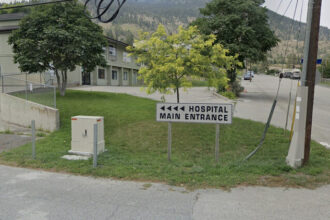In an urgent appeal that highlights the devastating humanitarian crisis unfolding in Gaza, international organizations and diplomatic channels are intensifying pressure on Canada to leverage its influence for immediate humanitarian aid access and support for a comprehensive peace plan. As the death toll climbs beyond 34,000 and critical infrastructure lies in ruins, the call for meaningful Canadian intervention has reached a fever pitch.
“The situation has deteriorated beyond what words can adequately describe,” said Dr. Samira Hassan, an emergency physician who recently returned from a medical mission at Gaza’s southern border. “Children are dying from preventable conditions because basic medical supplies cannot reach hospitals. Canada has both the diplomatic standing and moral obligation to help break this deadlock.”
The United Nations reports that nearly 80% of Gaza’s 2.3 million residents have been displaced since the conflict erupted in October, with severe shortages of clean water, food, and medicine creating conditions that humanitarian experts describe as “catastrophic.” Despite multiple temporary ceasefires, sustained aid delivery remains hampered by security concerns and damaged infrastructure.
Canada’s Foreign Affairs Minister has repeatedly expressed support for increased humanitarian assistance, allocating $100 million in aid since the conflict began. However, critics argue that financial commitments alone are insufficient without dedicated diplomatic pressure to ensure aid actually reaches those in desperate need.
“We’ve seen the devastating consequences of diplomatic hesitation,” said Professor Michael Thornton, international relations expert at the University of Toronto. “Canada holds significant leverage through its relationships with key regional players. What’s needed now is not just financial pledges but active engagement to create sustained humanitarian corridors.”
Several Canadian parliamentary representatives have joined growing calls for Canada to support the multinational peace proposal currently gaining traction among regional stakeholders. The proposal outlines a three-phase approach: immediate humanitarian access, followed by a negotiated ceasefire, and ultimately comprehensive peace talks addressing long-standing grievances.
The crisis has particular resonance in Canada, home to significant Palestinian and Jewish communities who have organized dozens of demonstrations nationwide urging more decisive government action. Recent polls indicate that 68% of Canadians believe their government should play a more active role in facilitating humanitarian aid delivery.
Economic implications of the conflict have also reached Canadian shores, with increased energy market volatility and supply chain disruptions affecting several Canadian businesses with Middle Eastern operations. Analysts suggest that beyond the clear humanitarian imperative, Canada has economic interests in regional stabilization.
Health experts warn that without immediate intervention, Gaza faces imminent public health catastrophes including outbreaks of cholera and other infectious diseases. The World Health Organization has documented attacks on 97 healthcare facilities, with only 15 of Gaza’s 36 hospitals remaining partially functional.
“Every day that passes without adequate medical supplies means preventable deaths,” said Dr. Hassan. “The international community, including Canada, must recognize that this isn’t just a distant crisis—it’s a defining moral challenge of our time.”
As diplomatic efforts intensify in capitals around the world, the question remains: will Canada transform its statements of concern into concrete action that makes a measurable difference for civilians caught in this devastating conflict?







